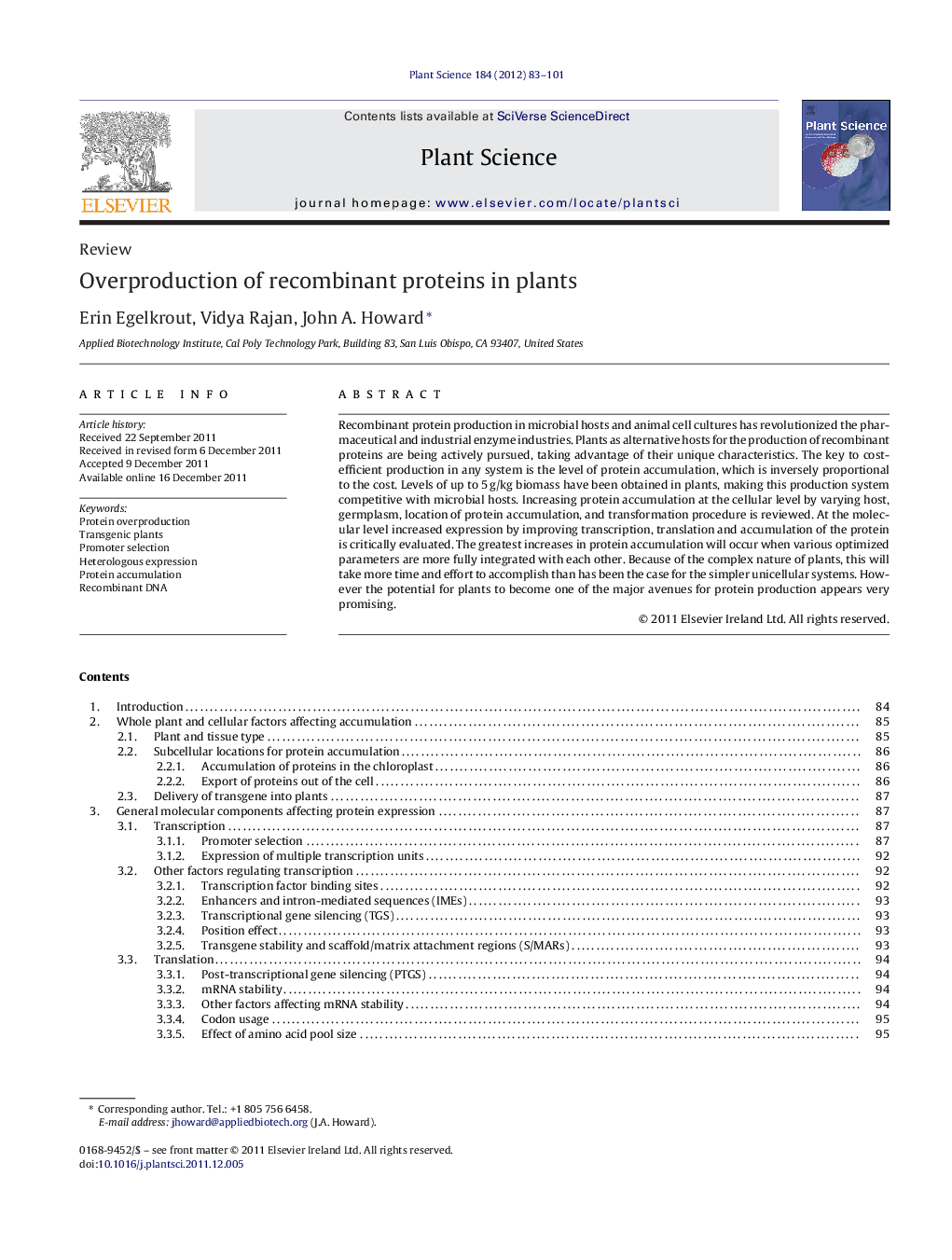| Article ID | Journal | Published Year | Pages | File Type |
|---|---|---|---|---|
| 2017484 | Plant Science | 2012 | 19 Pages |
Recombinant protein production in microbial hosts and animal cell cultures has revolutionized the pharmaceutical and industrial enzyme industries. Plants as alternative hosts for the production of recombinant proteins are being actively pursued, taking advantage of their unique characteristics. The key to cost-efficient production in any system is the level of protein accumulation, which is inversely proportional to the cost. Levels of up to 5 g/kg biomass have been obtained in plants, making this production system competitive with microbial hosts. Increasing protein accumulation at the cellular level by varying host, germplasm, location of protein accumulation, and transformation procedure is reviewed. At the molecular level increased expression by improving transcription, translation and accumulation of the protein is critically evaluated. The greatest increases in protein accumulation will occur when various optimized parameters are more fully integrated with each other. Because of the complex nature of plants, this will take more time and effort to accomplish than has been the case for the simpler unicellular systems. However the potential for plants to become one of the major avenues for protein production appears very promising.
► Plants have unique advantages as hosts for the overproduction of transgenic proteins. ► This review examines various options for the overexpression of proteins in plants. ► Manipulations of molecular and cellular factors can result in improved protein yield. ► Factors contributing to improved production and stability will be reviewed in detail.
